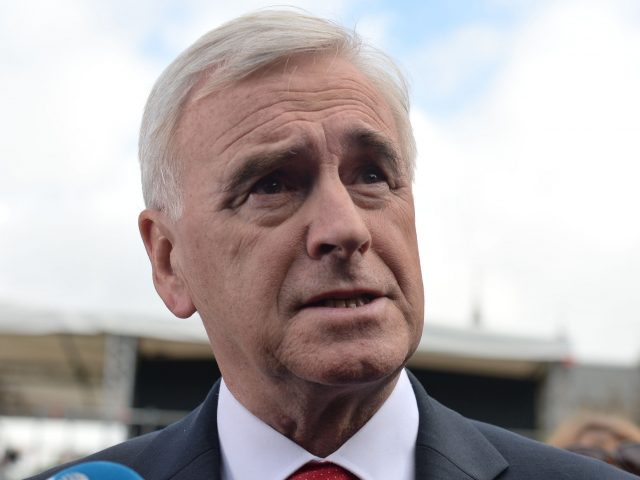
Brexit Secretary David Davis has denied claims the Government is using EU withdrawal to mask a power grab.
The comments came after the Opposition promised to create “hell” for ministers trying to get the Brexit Repeal Bill through Parliament.
Plans to allow the Government to use so-called “Henry VIII powers”, allowing ministers to alter legislation without full parliamentary scrutiny, drew sharp criticism.
The Repeal Bill provides confidence that there will be no unexpected changes on the day we leave the EU https://t.co/gq2pskjHdY pic.twitter.com/3lhKk5jpVE
— Exiting the EU Dept (@DExEUgov) July 13, 2017
But Mr Davis defended the move, telling the BBC: “The bit that is being described as a power grab, the so-called secondary legislation, where things are changed just to make them work, it isn’t at the stroke of a pen, it’s through secondary legislation, and there are mechanisms whereby the House of Commons, and, indeed, the House of Lords, will have debates on this matter and can vote it down.
“No, it is not just a ministerial signature, it is what they call a statutory instrument which is, can be debated, can be voted on.”
Shadow chancellor John McDonnell said Labour would oppose the Bill because it was undemocratic.
 John McDonnell branded the Bill ‘anti-democratic’ (Victoria Jones/PA)
John McDonnell branded the Bill ‘anti-democratic’ (Victoria Jones/PA)
He told BBC Newsnight: “It is the big issue. We have taken control from Europe, given it to the Government and then there is no parliamentary discussion or control over that, and that can’t be right.
“What we are saying is we need a different type of Bill. I am hoping the Government will let us amend a lot of this Bill and on that basis we may be able to support it. But we can’t at the moment because it is so anti-democratic.”
With 800 to 1,000 pieces of secondary legislation likely to be brought forward under the powers, and a two-year window in which to exercise them, there are likely to be strong further objections from MPs and peers.
The Repeal Bill means Scotland, Wales and Northern Ireland will not lose any of their current decision-making powers when we leave the EU pic.twitter.com/lbRL5GBTTO
— Exiting the EU Dept (@DExEUgov) July 13, 2017
Mr Davis also dismissed talk of a Cabinet clash over how to handle withdrawal from the EU.
Asked if there was disagreement among senior ministers after Foreign Secretary Boris Johnson said there was “no plan for no deal”, Mr Davis said he was working on arrangements for all outcomes of Brexit negotiations.
He said: “No, this isn’t a clash. I wasn’t there when the Foreign Secretary said what he said.”
Pressed on why Mr Johnson seemed unaware of the plans, the Brexit Secretary said: “You’ll have to ask him.”
The remarks came as Labour looked set to vote against the crucial repeal legislation unless it is amended, because it states the European Charter of Fundamental Rights will not be put into UK law after the country’s withdrawal from the EU.
The First Ministers of Scotland and Wales, Nicola Sturgeon and Carwyn Jones, said they would not grant the required legislative consent to the Bill as it stands, describing it as a “naked power grab” because it does not immediately return EU powers to devolved administrations.
And the Liberal Democrats warned the Government faces “hell” over the Bill, and a “political nightmare” that could cost Theresa May her job as Prime Minister.


Why are you making commenting on The Herald only available to subscribers?
It should have been a safe space for informed debate, somewhere for readers to discuss issues around the biggest stories of the day, but all too often the below the line comments on most websites have become bogged down by off-topic discussions and abuse.
heraldscotland.com is tackling this problem by allowing only subscribers to comment.
We are doing this to improve the experience for our loyal readers and we believe it will reduce the ability of trolls and troublemakers, who occasionally find their way onto our site, to abuse our journalists and readers. We also hope it will help the comments section fulfil its promise as a part of Scotland's conversation with itself.
We are lucky at The Herald. We are read by an informed, educated readership who can add their knowledge and insights to our stories.
That is invaluable.
We are making the subscriber-only change to support our valued readers, who tell us they don't want the site cluttered up with irrelevant comments, untruths and abuse.
In the past, the journalist’s job was to collect and distribute information to the audience. Technology means that readers can shape a discussion. We look forward to hearing from you on heraldscotland.com
Comments & Moderation
Readers’ comments: You are personally liable for the content of any comments you upload to this website, so please act responsibly. We do not pre-moderate or monitor readers’ comments appearing on our websites, but we do post-moderate in response to complaints we receive or otherwise when a potential problem comes to our attention. You can make a complaint by using the ‘report this post’ link . We may then apply our discretion under the user terms to amend or delete comments.
Post moderation is undertaken full-time 9am-6pm on weekdays, and on a part-time basis outwith those hours.
Read the rules here